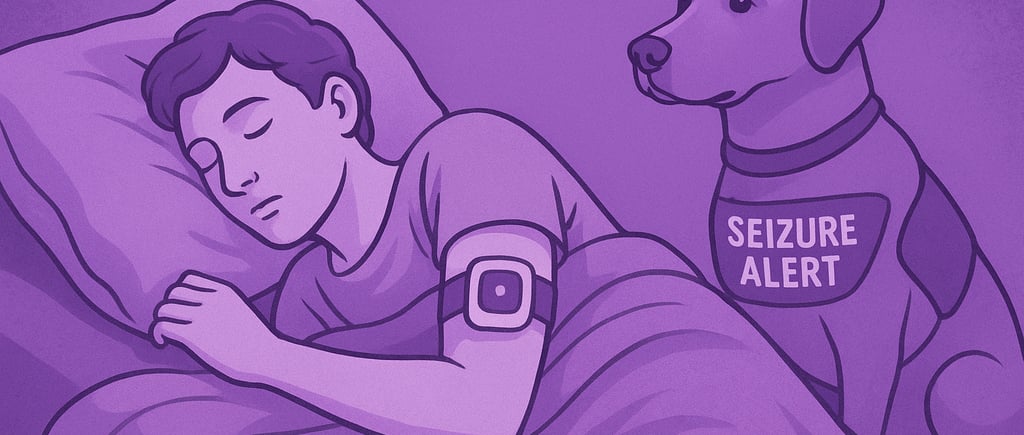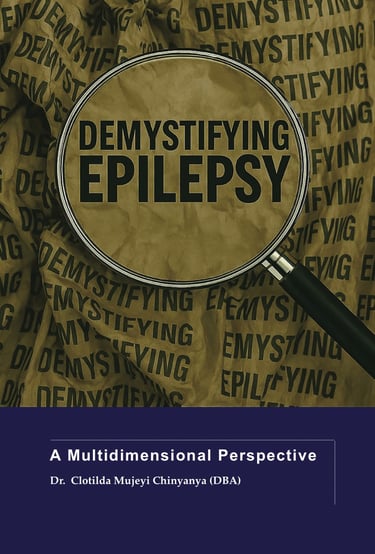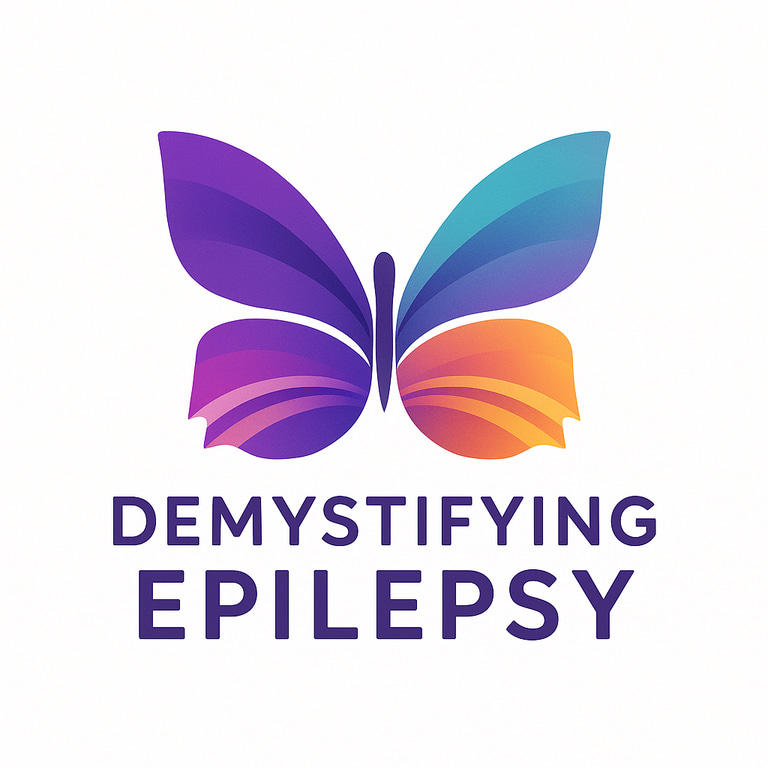SUDEP: The Silent Risk Behind Uncontrolled Seizures
Seizures often dominate the conversation about epilepsy, but there’s another serious risk: SUDEP (Sudden Unexpected Death in Epilepsy). While rare, SUDEP is one of the leading causes of epilepsy-related deaths. Understanding it empowers people with epilepsy, families, and caregivers to take steps that may reduce risk and advocate for more research. This blog explains what SUDEP is, who may be at higher risk, and practical strategies to lower that risk, while highlighting the importance of support, medical guidance, and awareness. Knowledge isn’t meant to create fear; it’s meant to save lives.
Dr. Clotilda Chinyanya
9/12/20253 min read


When we think about epilepsy, the focus is often on seizures and how to manage them. But there’s another, lesser-known part of epilepsy that deserves attention: SUDEP, or Sudden Unexpected Death in Epilepsy. The name itself can sound alarming, but knowing about SUDEP is important. Awareness empowers people with epilepsy (PWE), families, and caregivers to take steps that may reduce risk and to advocate for more research.
What is SUDEP?
SUDEP refers to the sudden, unexpected death of a person with epilepsy, where no other cause is found. It usually happens during or right after a seizure, although not always. While rare, SUDEP is one of the leading causes of epilepsy-related deaths. On average, it affects about 1–2 out of every 1,000 adults with epilepsy each year, with lower but present risks in children (1).
Why Does It Happen?
The exact cause of SUDEP is not fully understood, but research points to a few possible factors working together:
Breathing problems – A seizure can cause breathing to stop temporarily or lead to blocked airways.
Heart rhythm changes – Some seizures may trigger dangerous irregular heartbeats.
Brain shutdown – After a seizure, the brain may briefly fail to regulate breathing and heartbeat (2).
It’s likely that a combination of these factors, rather than just one, leads to SUDEP.
Who is Most at Risk?
Not everyone with epilepsy has the same level of risk. Some factors linked to a higher chance of SUDEP include:
Frequent tonic-clonic seizures (the full-body shaking type).
Seizures that happen during sleep or at night.
Missed or irregular use of epilepsy medication.
Long-standing epilepsy that remains uncontrolled.
Living alone, with no one nearby during a seizure (3).
It’s important to remember that SUDEP can still occur in people without these risk factors, which is why awareness matters for everyone.
How to Lower the Risk
The good news is that there are practical steps that can reduce the likelihood of SUDEP:
Take medication as prescribed – Skipping doses is one of the biggest risks for breakthrough seizures. If side effects are difficult, talk to your doctor rather than stopping suddenly.
Regular medical follow-up – Check-ins with a neurologist help adjust treatment and improve seizure control.
Prioritize sleep – Fatigue is a common seizure trigger.
Be mindful of alcohol and stress – Both can increase seizure risk.
Consider seizure alerts and monitors – Wearable devices, seizure alert dogs, or nighttime alarms may help caregivers respond quickly if a seizure occurs (4).
Most importantly, epilepsy should never be managed in isolation. Having a support network of family, friends, or caregivers provides another layer of safety.
The Doctor’s Role
For a long time, SUDEP wasn’t widely discussed, even in medical settings. That’s changing. Many doctors now encourage open conversations about SUDEP, so patients and families can make informed choices. If your doctor hasn’t brought it up, it’s okay to ask. Talking about SUDEP doesn’t mean living in fear, it means being aware and proactive.
Supporting Families and Caregivers
Hearing about SUDEP for the first time can feel overwhelming. Families may experience anxiety about “what if” scenarios but focusing on seizure management and lifestyle strategies helps balance awareness with reassurance. In the rare event that SUDEP happens, families often face sudden grief and unanswered questions. Support groups, counseling, and epilepsy organizations can provide help during this difficult time.
Why Research and Advocacy Matter
Although SUDEP is rare, its impact is profound. Every life lost represents a person, a family, and a community left searching for answers. That’s why research into SUDEP is so vital. Scientists are working to understand the exact mechanisms behind SUDEP, improve seizure detection technologies, and find new treatments. Epilepsy foundations and SUDEP-focused organizations are also pushing awareness campaigns and supporting families (5). Getting involved whether by sharing information, joining awareness events, or supporting research helps drive progress forward.
Final Thoughts
SUDEP is a difficult topic, but silence doesn’t protect anyone. Awareness, understanding, and proactive steps can. For people with epilepsy, learning about SUDEP isn’t about living in fear. It’s about living wisely: managing seizures, working closely with doctors, and using available tools to stay safe. Together, by spreading awareness and supporting research, we can reduce the risk of SUDEP and move closer to a future where it no longer exists. BUY Demystifying Epilepsy for more information on SUDEP.
References
Harden C, Tomson T, Gloss D, et al. Practice guideline summary: Sudden unexpected death in epilepsy incidence rates and risk factors. Neurology. 2017;88(17):1674–1680. https://doi.org/10.1212/WNL.0000000000003685
Shorvon S, Tomson T. Sudden unexpected death in epilepsy. Lancet. 2011;378(9808):2028–2038. https://doi.org/10.1016/S0140-6736(11)60176-1
Devinsky O, Hesdorffer DC, Thurman DJ, et al. Sudden unexpected death in epilepsy: epidemiology, mechanisms, and prevention. Lancet Neurol. 2016;15(10):1075–1088. https://doi.org/10.1016/S1474-4422(16)30158-2
Ryvlin P, Nashef L, Lhatoo SD, et al. Prevention of sudden unexpected death in epilepsy: a realistic goal? Epilepsia. 2013;54 Suppl 2:23–28. https://doi.org/10.1111/epi.12180
SUDEP Action. Research and resources on SUDEP. Available at: https://sudep.org


